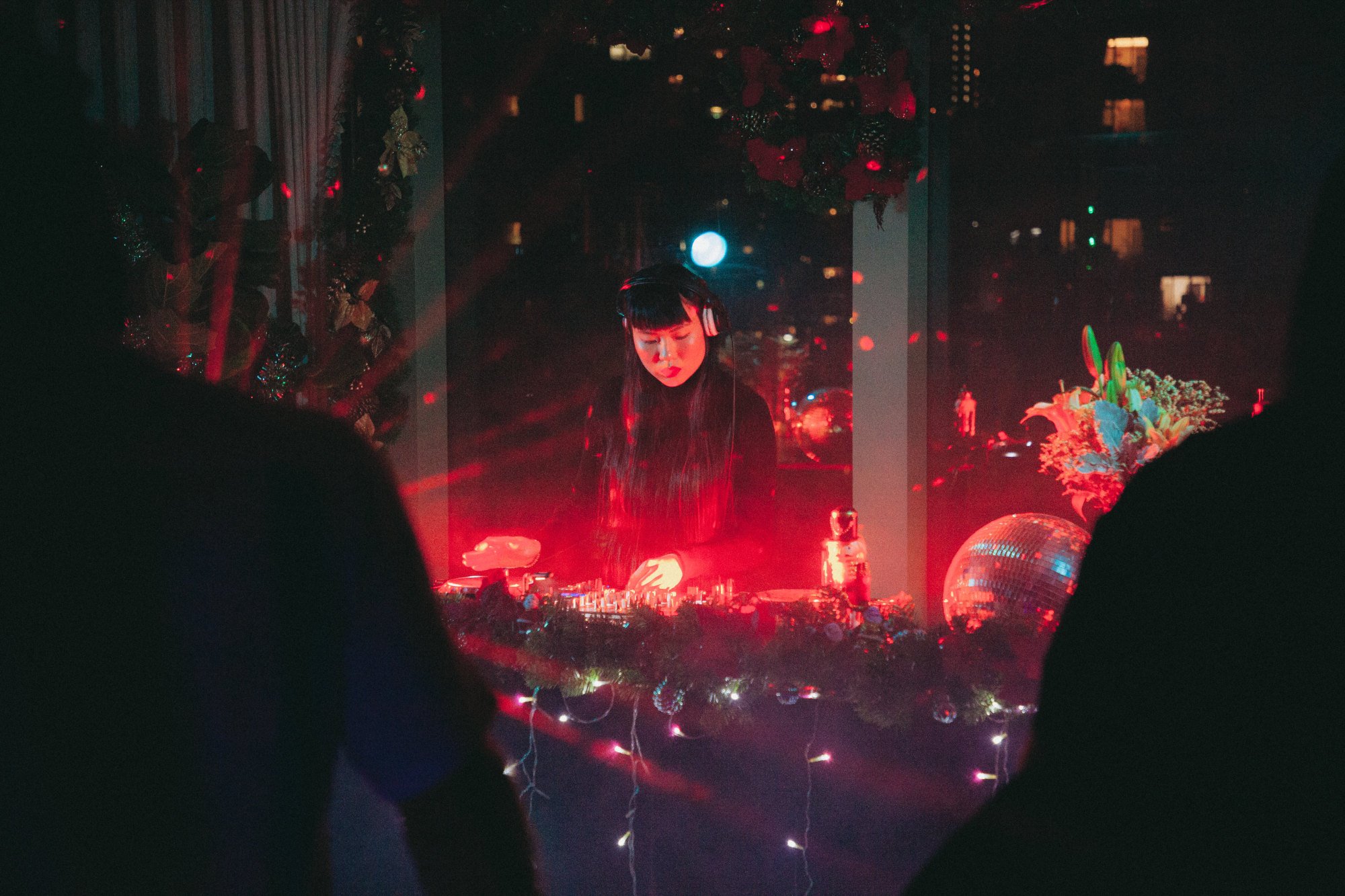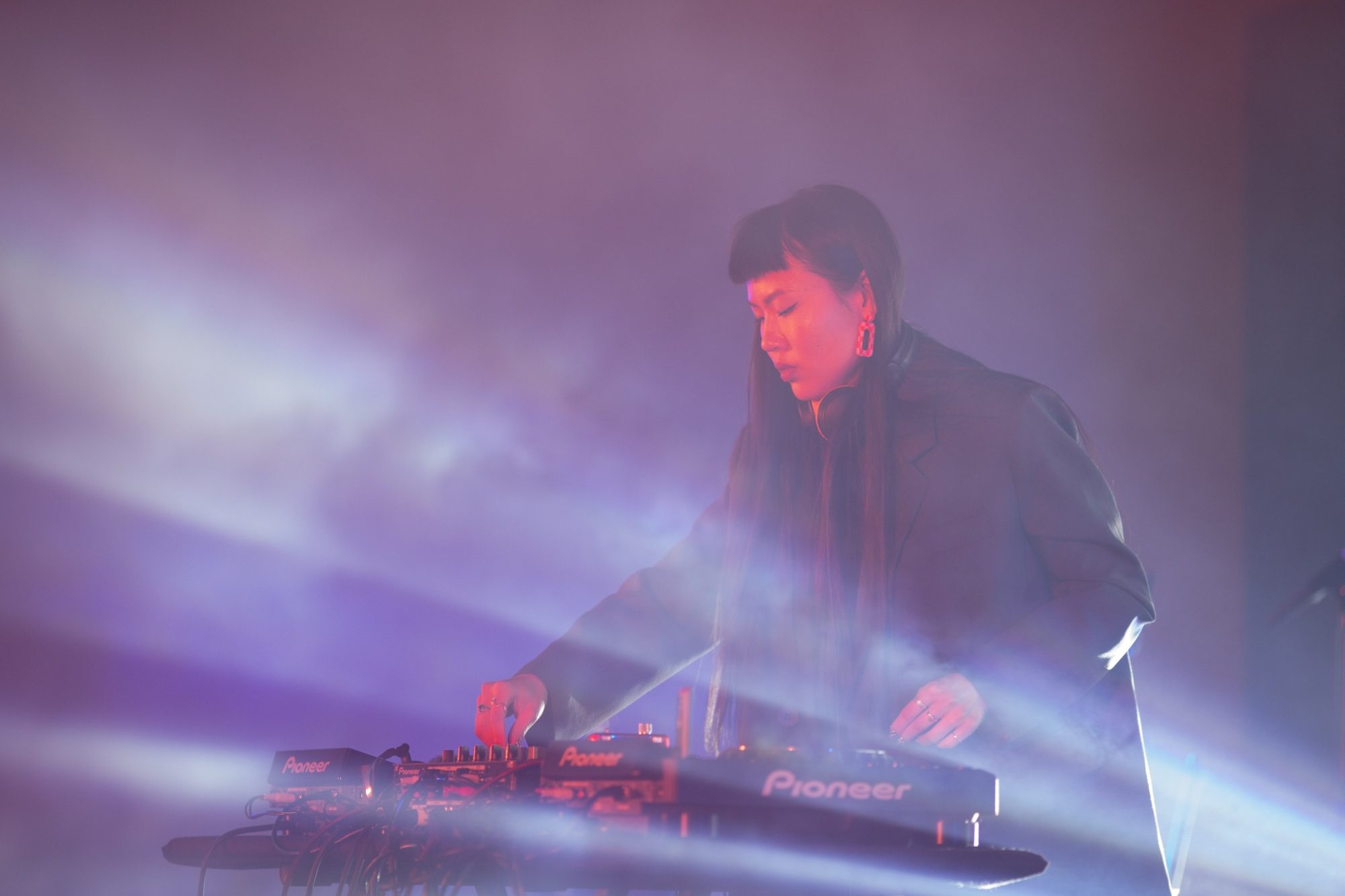“With ADHD, you have trouble keeping focus and need a thrill with a good reward; with DJing, there’s a risk, because you could f*** up a beat match and the whole club would be silent.

“People are there to have fun, and you have that extra pressure to perform. The thrill of possibly screwing up, that’s what I really liked.”
One of her earliest memories involved listening to 2 Unlimited’s 1993 high-speed techno track “No Limit” when she was three or four years old.
“I used to spend a lot of time with my uncle, who had a crazy vinyl collection of dance music that he would play on his turntables,” she says. “Subconsciously, I feel like that’s where it began.”
When she was around 16, a friend took her to her first dance-music event, where she experienced an in-person DJ set for the first time and immediately fell in love with drum and bass.
“What is this fast music and how do I dance to this?” she remembers thinking. It was unlike anything she had heard before. “There are so many layers to drum and bass – it’s very thoughtful, energetic and sonically interesting.”
I have ADHD, so it’s hard for me to persist through things I want to do, and when it’s something I don’t want to do – forget about it.
She quickly threw herself into Hong Kong’s dance music scene.
In the mid-2010s, already deep into the local drum and bass community, she organised a birthday party and invited some of her favourite Hong Kong-based DJs. Before the party, one of the DJs taught her the basics and encouraged her to surprise everyone at the event by playing a set herself.
It was also at around this time that she decided to quit university after studying accounting for a year and a half.
“I somehow lied to myself that I needed to fulfil these societal checkboxes,” she says. “I have ADHD, so it’s hard for me to persist through things I want to do, and when it’s something I don’t want to do – forget about it.”
A series of odd jobs followed, during which time she DJed at small gigs and underground parties. Music did not pay well, but she kept going because it was the one thing she truly enjoyed.

“The artistry of DJing is the curation of music and connecting with the audience,” she says. “I can DJ for five hours straight, no problem. There’s so much going on.
“You have to look after the audience, communicate with the staff at the venue, think of what songs to play next and in these chunks of the set times […] being able to control all that is really stimulating.”
In 2019, in her mid-twenties, she returned to university to study new media, which expanded her musical vision. She took courses in sound art and explored the discipline in new and different ways outside DJing.
Instead of pulling sets of existing tunes together, she started making her own. For her graduation thesis, she wrote about how sound affects the listener’s perception of time, based on her research into the history and philosophy of sound art and the corresponding acoustics, physics and physiology.
This led her to become more selective with her DJing gigs.
I’m trying new things and being brave!
“I used to say yes to everything – that’s why I’ve been doing this nonstop for almost 10 years – but there was a lot of self-reflection that happened during Covid, when there were no gigs to say yes to,” she says.
“Now I’m thinking, ‘What do I want to express?’ I’ve moved away from playing purely drum and bass music for at least two to three years now.
“I am so much more than this one type of music or this one way of DJing.”
Since graduating last year, she has been teaching DJing from her studio.
“I enjoy socialising and getting to know someone, which is helpful because I’m able to tease out what people need in order to provide guidance and mentoring,” she says. “All of my classes are personalised to the individual student.”
The age of her students ranges from eight to around 50.
She is also working on an EP, to be released later this year.
“I’m exploring how to use my voice, which will be in it,” she says. “I’m trying new things and being brave!”

